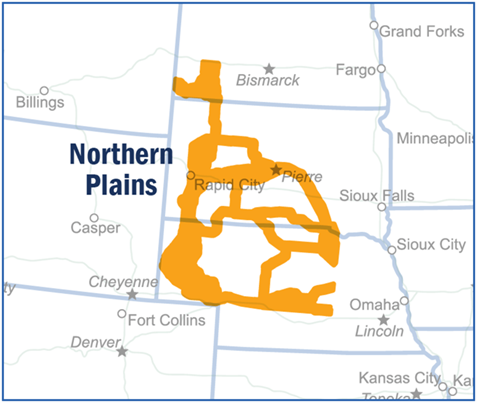On October 17, 2024, the Federal Energy Regulatory Commission (FERC) unanimously voted to finalize its rule with plans for exercising its limited authority over transmission line siting. Order No. 1977 clarifies that FERC has the authority to issue transmission permits within U.S. Department of Energy-designated National Interest Electric Transmission Corridors (NIETC) even after states deny an application in these areas.
The following map identifies NIETC areas nationwide. NIETC Designation, DOE.

This area includes significant portions of North and South Dakota:

In the original Notice of Proposed Rulemaking, FERC proposed to allow FERC’s application process to take place simultaneously with states’ processes. But the final rule did not adopt this approach, after states and other stakeholders raised concerns about respect for state authority. Order No. 1977. Instead, under Order No. 1977, FERC has authority to consider a transmission siting permit application when a state commission or siting authority has denied an application.
The rule also adds several reports to the list of reports that applicants must include when submitting an application to FERC. The new reports include:
- A Tribal Resources Resource Report that consolidates existing requirements describing the proposed project’s effects on Tribes, Tribal lands and Tribal resources.
- An Environmental Justice Resource Report identifying environmental justice communities in the project area.
- An Air Quality and Environmental Noise Resource Report that estimates emissions and noise from the proposed project.
Questions remain about how states will receive this federal authority, and whether the rule effectively shares state and federal siting authority.



